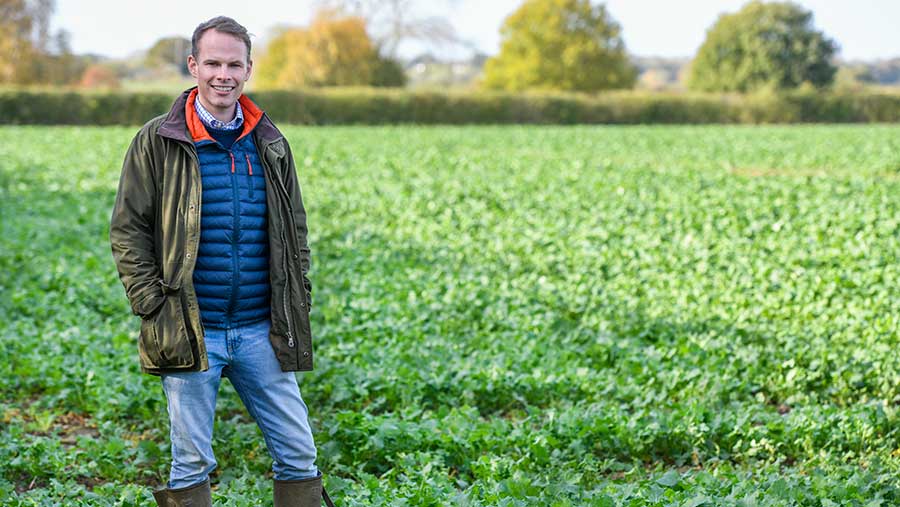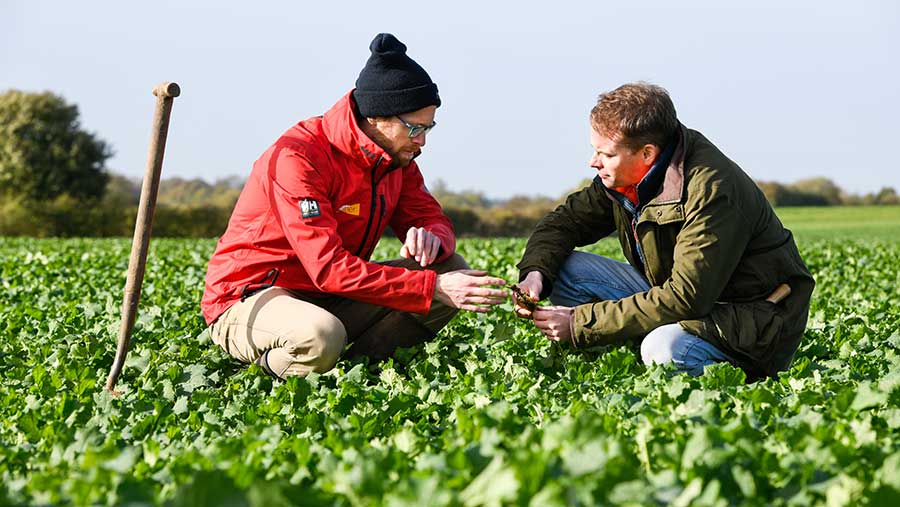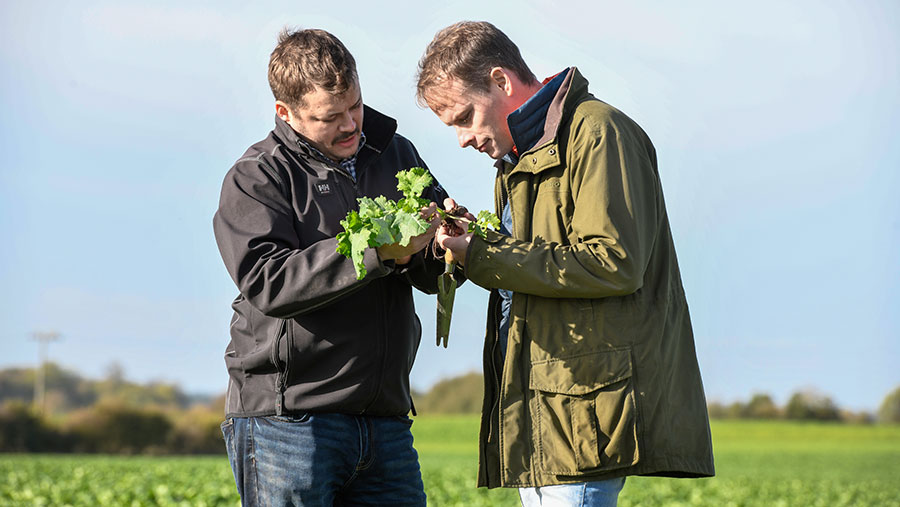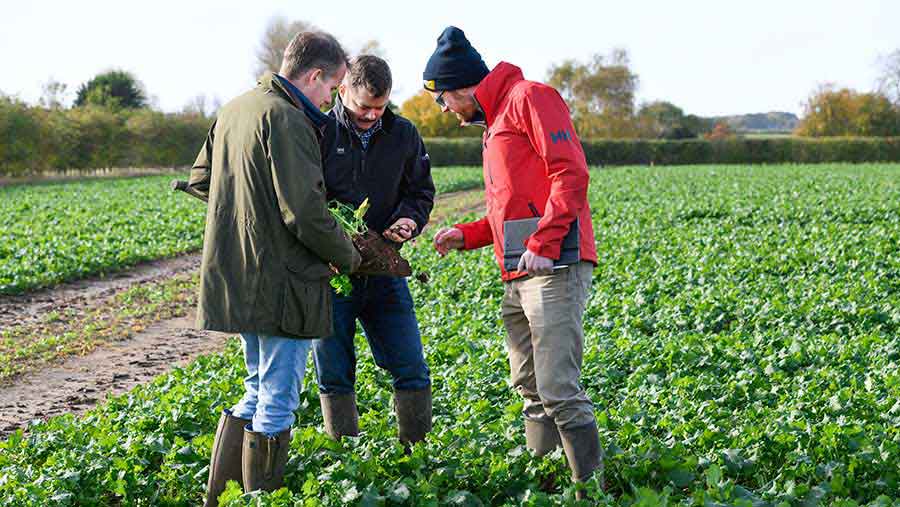Advertiser content
Sustainability is more than no-till and cover crops
Sustainable crop production, regenerative farming, agroecology. It doesn’t matter what you call it, there is no doubt that there has never been more interest (or a greater imperative) to farm in a way which sustains and improves the environment.
Rob Scott, of mid-Norfolk-based T H Scott & Son, says his ‘lightbulb moment’ came following the wet conditions in 2019 and 2020 when it was difficult to establish crops, fields were waterlogged and vehicles became stuck.

Rob Scott © Frontier Agriculture
“We realised that things weren’t right and that we had to evolve,” he says. “I’d been to Groundswell in 2019 and that had opened my eyes to what was potentially possible.”
Although that year was a pivotal moment, Rob S, who farms 200ha of his own land together with a further 1,300ha of contracted land, had started to adopt some of the key elements of regenerative agriculture years before.
Cover crops had been grown for the last decade and the farm was already using min-till systems for establishment.
From Frontier, agronomist Rob Hamlen helped support the farm’s change to no-till drilling and sustainability specialist, Rob Nightingale, now helps to introduce further new ideas.
“We are always trying to change and evolve,” says Rob S. “It’s very easy to become blinkered when you’re on your own farm.”

Rob Hamlen and Rob Scott © Frontier Agriculture

Rob Nightingale and Rob Scott © Frontier Agriculture
The farm grows 400ha of cover crops and Rob N is helping to advise on effective management, such as mitigating any impact from surface residue and optimising seed rates for direct-drilled crops.
The latest project is trialling a clover mulch in some of this year’s winter oilseed rape.
“We have looked carefully at the rotation and inputs. For example, winter barley was struggling with establishment,” adds Rob N.
“We changed drilling to improve seed-to-soil contact and invested in a low disturbance subsoiler for targeted action. However, while we have looked at different cropping options, it all comes back to margin.”
Rob S continues: “Margin is everything on this farm as we are dependent on it for an income. We have drastically reduced our winter barley acreage because of the lack of margin.”
He also adds that improving soil health has “saved money with diesel, metal and importantly time,” having been able to reduce the power requirement of the farm’s tractor fleet.
“We were running multiple 300hp tractors and we’ve reduced them,” he says. “The drill is now pulled with a single 250hp machine and that is now the biggest tractor in the fleet.”

Rob Scott, Rob Hamlen & Rob Nightingale © Frontier Agriculture
Rob S stresses, however, that any new techniques need to be assessed financially as well as agronomically.
“We have found that sometimes reducing fungicides and replacing them with biostimulants doesn’t reduce total spend, so you have to be careful,” he says.
T H Scott & Son has also introduced sheep, together with legumes and haylage leys. Rob S has taken the decision to use his own flock, rather than rely on partnering with another farm business.
“I don’t know of any other contract farmers that are offering a one-stop shop, mixed farming system,” he adds.
“I take sole responsibility for them; for example, I can move animals if rain is forecast to prevent soil damage and as arable farmers have different objectives to graziers, we’re not working at cross purposes.”
More information about Frontier’s sustainable crop production services can be found at www.frontierag.co.uk/sustainable-crop-production.
Provided by
Frontier’s commitment to sustainability is woven into all of our operations and the work we do with farmers, suppliers and partners.
At the very heart of this is sustainable crop production; working with farmers to support long term, viable farming systems that increase the longevity of arable businesses, encourage high-quality food production and help our farmed landscape to become more resilient.
The implementation of a sustainable crop production system requires a holistic approach to overall farm management. What works on one farm may not always be right for another.
We have created a crop production sustainability model that covers seven focus areas: soil health, crop growth cycle, environmental management, compliance, carbon management, digital solutions and regenerative agriculture. By exploring the ways they are linked, we help farmers to take a considered, whole-farm approach to achieving sustainability objectives.
Find out more at frontierag.co.uk/sustainable-crop-production
